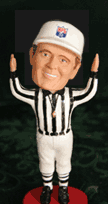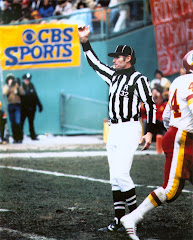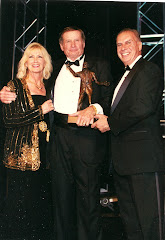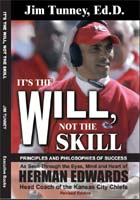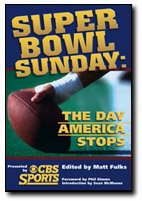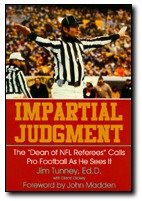After Further Review … “Why We Fight” (in our training camp) was the headline in a recent story in Sports Illustrated, by Peter King. The story described what New York Jets rookie Head Coach Rex Ryan wants in his pre-season training camp. Ryan, according to King’s story, told his players what the “rules of engagement” are: “If and when there is a fight, offensive players should pull defensive players off the pile and vice versa. Never should an offensive player grab another (offensive player) during a fight, because,” said Ryan, “that could give a defender a chance to get a ‘free shot’ when his foe is being held.”
You gotta be kiddin’ me! What happened to the coaching/teaching philosophy “Practice the way you want to play in a game?” That adage is preached by virtually all coaches. Practice sloppy – play sloppy. Drop passes in practice and you’ll drop them in a game. Jerry Rice, WR #80 of the San Francisco 49ers, would catch a pass – in practice – and run all the way to the goal line, because that’s what he intended to do in a game.
Having officiated dozens of NFL pre-season practices, I observed a variety of coaching philosophies. Hall of Fame Coach John Madden and Tom Flores, for example, both successful coaches with the Oakland Raiders, used to allow a fight to play itself out. (Note: current Raiders rookie Head Coach Tom Cable took that to a new level recently when he, allegedly, punched one of his assistant coaches.) Hall of Fame Coach Don Shula (Baltimore Colts and Miami Dolphins) said, “You have to understand that this is an emotional game - a player can lose his temper. When a fight happens during practice,” continued Shula, “you break it up quickly.”
What Shula and most coaches emphasize is that fighting in a game will get a player ejected (see NFL Rule 12-3-1-a, page 82) and, said Shula, “We can’t afford to lose players!” Practice like it’s game conditions. Ryan’s idea (“You have to go out there -- on the field -- knowing the guy playing next to you has your back; it bonds you”) can be detrimental to a player in game conditions. Learning to control your emotions is part of what T.E.A.M. sports is all about. It will serve you well in many life situations. Seems to me that there are better ways to “bond” team mates.
Will you find ways to build rapport with team mates?(Note: watch for my new site: “Tunney Side of Sports”)
Monday, August 24, 2009
Friday, August 14, 2009
On the Tunney Side of the Street - "Water - an essential to good health" - #242, 8-17-09
After Further Review ... “Hey Coach, can I get some water,” asked a player recently. “Water? We don’t drink water during practice,!” shout some coaches as they prepare their football teams in August for the upcoming season. I vividly recall my coaches not allowing water during practices.
The philosophy, then, was 1) water would make you lethargic; 2) physical contact could create vomiting; 3) and, denying water would ‘toughen you up’ for the rigors of the game. Water was a sign of weakness. I accepted that from coaches in those days; it was the way they were trained. They also believed that using weights (barbells, etc.) would make you muscle bound, thereby limiting flexibility.
Much has changed. We now know that “weight training” – done under supervision - can be most useful in developing muscle strength. This is not to say that “push -ups” and “sit-ups” don’t do the job, but technology and equipment have progressed. Being part of the PRECOR T.E.A.M., I learned that their equipment helps maintain a healthy cardio-vascular system, improves strength and flexibility, with an enlightening effect on wellness.
What we have learned in the last 2-3 decades is that physical training and conditioning improves preparation for a sport. First and foremost, a physical examination by a doctor trained in cardio conditioning is vital; not just for professional athletes and adults, but kids as well. Yes, kids, those 8-14 year-olds who look physically fit may have “hidden” issues that only a physical exam can reveal.
The death of Minnesota Vikings Korey Stringer in 2001, who died of multiple organ failure caused by heat stroke after collapsing during an August practice, certainly alerted the Stringer family to closely watch son, Kodie, now age 11 (5’9” and 240 pounds). Kodie’s mother, Kelci, is determined to make the past meaningful to her son, as well as for others.
The NFL, so mindful of the death of Korey Stringer, has alerted its teams, coaches, trainers and players of the value of hydration, i.e. water. The NFL must be a leading example to football programs in colleges, high school, Pop Warner, et al, about the value of water. Many non-athletes count on water for a healthy life style and often use it for weight control.
The warning here is for everyone who believes in exercise and physical conditioning: drink water frequently!
Will you take a lesson from those who didn’t?
The philosophy, then, was 1) water would make you lethargic; 2) physical contact could create vomiting; 3) and, denying water would ‘toughen you up’ for the rigors of the game. Water was a sign of weakness. I accepted that from coaches in those days; it was the way they were trained. They also believed that using weights (barbells, etc.) would make you muscle bound, thereby limiting flexibility.
Much has changed. We now know that “weight training” – done under supervision - can be most useful in developing muscle strength. This is not to say that “push -ups” and “sit-ups” don’t do the job, but technology and equipment have progressed. Being part of the PRECOR T.E.A.M., I learned that their equipment helps maintain a healthy cardio-vascular system, improves strength and flexibility, with an enlightening effect on wellness.
What we have learned in the last 2-3 decades is that physical training and conditioning improves preparation for a sport. First and foremost, a physical examination by a doctor trained in cardio conditioning is vital; not just for professional athletes and adults, but kids as well. Yes, kids, those 8-14 year-olds who look physically fit may have “hidden” issues that only a physical exam can reveal.
The death of Minnesota Vikings Korey Stringer in 2001, who died of multiple organ failure caused by heat stroke after collapsing during an August practice, certainly alerted the Stringer family to closely watch son, Kodie, now age 11 (5’9” and 240 pounds). Kodie’s mother, Kelci, is determined to make the past meaningful to her son, as well as for others.
The NFL, so mindful of the death of Korey Stringer, has alerted its teams, coaches, trainers and players of the value of hydration, i.e. water. The NFL must be a leading example to football programs in colleges, high school, Pop Warner, et al, about the value of water. Many non-athletes count on water for a healthy life style and often use it for weight control.
The warning here is for everyone who believes in exercise and physical conditioning: drink water frequently!
Will you take a lesson from those who didn’t?
Subscribe to:
Posts (Atom)



